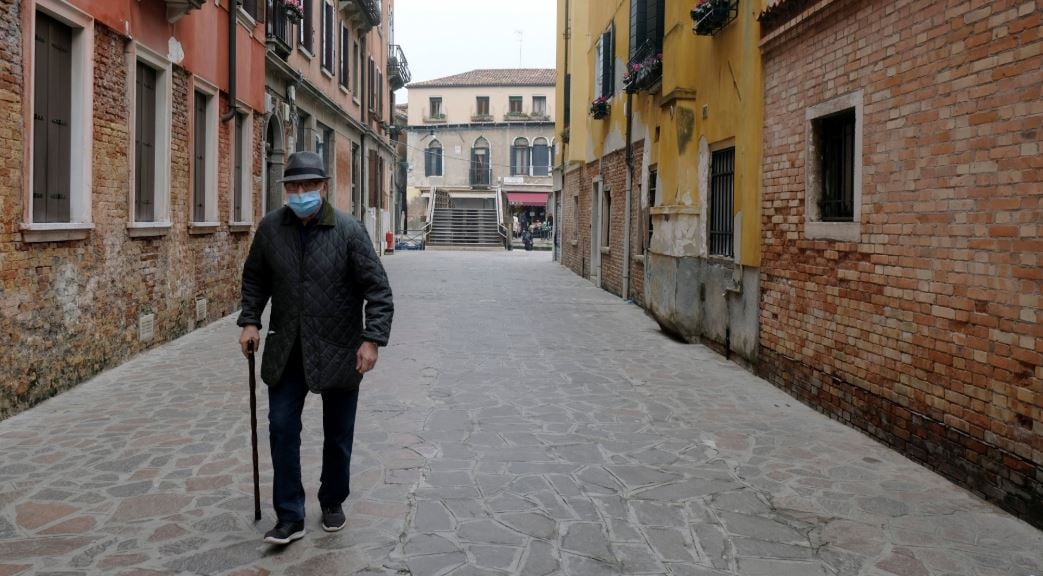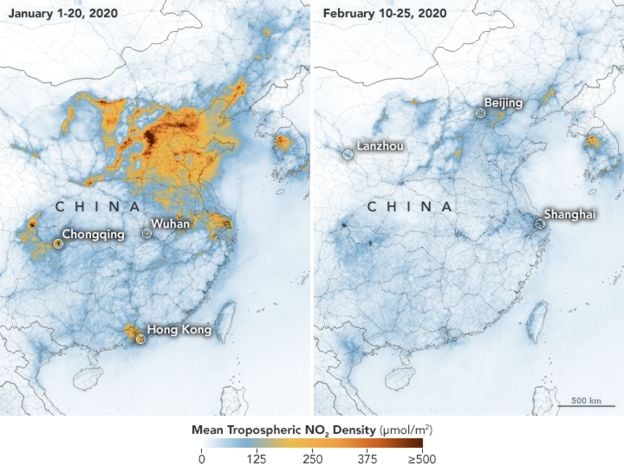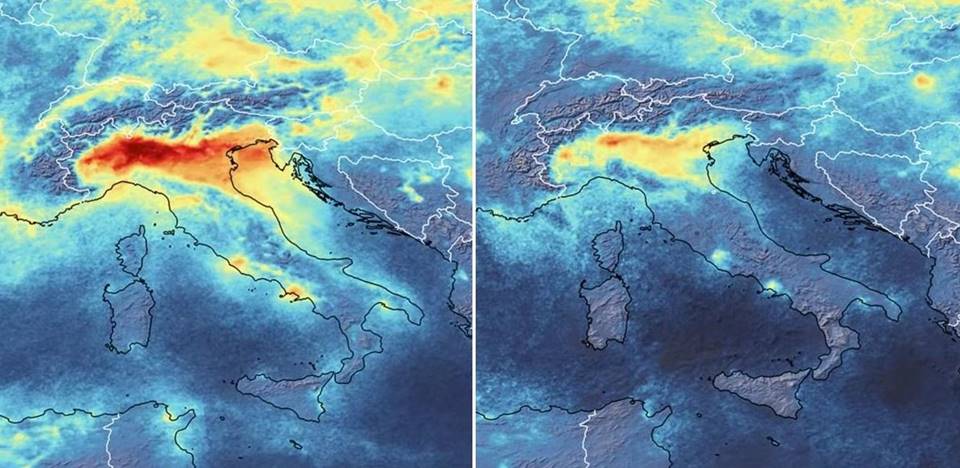If there’s a silver lining to the COVID-19 pandemic, it’s the effect it has had on the environment. In Italy, people have been on lockdown since March 9 and the lack of human activity has had a visibly positive impact on air quality.
To reduce the spread of the
disease, Italy’s Prime Minister Giuseppe Conte put the entire country on
lockdown, closing bars, restaurants, museums, and schools throughout the
country.
“There is no more time,” he said in a TV address. “We’re having an important growth in infection… and of deaths. The whole of Italy will become a protected zone,” he added.
During lockdown, the vast majority of cars have been off the road and some factories that would be spewing pollutants into the air are temporarily closed.

Data visualizations from satellites shows a dramatic decrease in N02 (nitrogen oxide) emissions over the entire country since it went on lockdown.
N02 is an indicator of pollution levels because it is
released into the air after the burning of fuel. NO2 is created by emissions
from cars, trucks and buses, power plants, and off-road equipment. Exposure to
high amounts of N02 can lead to respiratory problems such as asthma and infections.
N02 interacts with water, oxygen and other chemicals to
create acid rain.
“The decline in nitrogen dioxide emissions over the Po
Valley in northern Italy is particularly evident,” Claus Zehner, ESA’s
Copernicus Sentinel-5P mission manager said in a statement.
“Although there could be slight variations in the data due
to cloud cover and changing weather, we are very confident that the reduction
in emissions that we can see, coincides with the lockdown in Italy causing less
traffic and industrial activities,” Zehner added.
The coronavirus has also had a positive effect on pollution in China. China is the world leader in toxic emissions accounting for 30% of the world’s air pollution.
Over a two-week period, emissions in China dropped by 25%. That’ll lead to a modest 1% drop in emissions from the country in 2020.

Numbers out of New York, the state hardest hit by the virus, show that the change in human behavior is also having positive environmental effects.
According to researchers at Columbia University, traffic levels in New York City are down 35% and carbon monoxide emissions from cars and trucks have fallen by about 50% this week.
“New York has had exceptionally high carbon monoxide numbers for the last year and a half,” said Prof Róisín Commane from Columbia University. “And this is the cleanest I have ever seen it. It’s is less than half of what we normally see in March.”
Globally, people’s behavior due to the coronavirus should have a positive effect on the planet as a whole. “I expect we will have the smallest increase in May to May peak CO2 that we’ve had in the northern hemisphere since 2009, or even before,” Commane said according to the BBC.
Unfortunately, the overall drop in pollution will be dependent
on how far the virus spreads.
“It will depend on how long the pandemic lasts, and how widespread the slowdown is in the economy particularly in the US. But most likely I think we will see something in the global emissions this year,” Professor Corinne Le Quéré from the University of East Anglia, said according to the BBC.
Photo credit: European Space Agency, AJ+ / Twitter, Busworld Academy, Coronavirus Disease (COVID-19) / YouTube.

